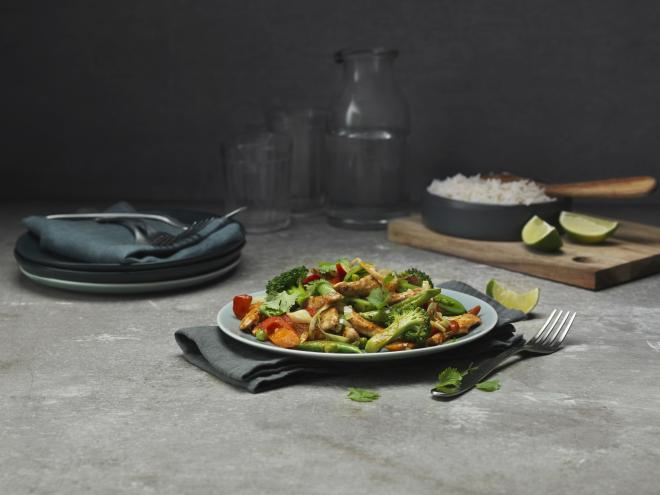Russian culinary culture is developing and assuming international influences in leaps and bounds. “Russians started travelling and visiting different countries more actively throughout the 2000s, bringing new dishes and recipes. In addition, increase of the share of immigrants of a city’s population affects the birth of new ethnic gastronomical trends,” says Victoria Demyanenko, Business & Consumer Intelligence Group Head, Paulig East.
Borscht, potatoes, herring, sauerkraut... These are the dishes that often first come to mind when thinking about traditional Russian cuisine. In reality, the modern Russian kitchen is more multicultural and distinctive.
Traditional Russian dishes historically were prepared with affordable ingredients. However, food is now prepared from a more diverse selection of ingredients, and traditional Russian cuisine is developing and continuously assuming multicultural influences and nuances.
“Russians started travelling and visiting different countries more actively throughout the 2000s, bringing new dishes and recipes. A multicultural and international approach can be seen in what and how Russians eat,” says Victoria Demyanenko, Business & Consumer Intelligence Group Head, Paulig East.
Italian food, such as pasta and pizza, Japanese and Asian cuisine, for instance sushi, woks and rolls, are becoming increasingly popular in Russia. However, modern Russian cuisine still includes traditional dishes that are generally combined with the flavours of Central Asian and Caucasian countries. For instance, they love to marinate beef in Russia: “A shashlik or kebab is often cooked on an open flame in summer and spring. Russians gather together with friends or family to spend time together in the fresh outdoor air while the food is being cooked.”
And what are Victoria Demyanenko’s favourite delicacies?
“I like pan-fried potatoes. I also love the flavours of Georgian cuisine that is familiar to me from my childhood.”
The winds of change follow immigration
More Georgian and Asian restaurants open up in Russian cities constantly. According to Demyanenko, the winds of change are strengthened by the increase in the population’s average salary as well as the growing number of people who moved from the other countries and brought their culinary traditions with them.
“This affects the birth of new ethnic gastronomical trends. It happens all over the world. For example, traditions of people, who moved to America, has significantly affected today’s Americans daily meal.”
Local is popular
Healthy food is another global trend which is also common among Russians. Russians used to be more and more aware of their food choices as consumers.
“They eat less meat, use less sugar and fat – or at least a major part of people try to,” says Demyanenko.
Home-grown seasonal products or products made by particular farmer are also in high demand in Russia. Restaurants try to meet this demand rapidly, too.
“Local products are popularised in all ways possible, highlighting their freshness and quality.”

Paulig and Santa Maria brands have their finger on the pulse
According to Demyanenko, the Paulig and Santa Maria brands have their finger on the pulse and they are on top of the ongoing trends. They offer fresh and new interesting flavours.
“The idea is to provide more information about the culinary cultures of different countries together with high-quality products. We are always developing new flavours to explore great tastes.”
Russians are interested in coffee culture today. The consumption of coffee is also growing in this country, new cafés open their doors, and people are generally well aware of different coffee varieties.
“The category of natural coffee, in particular, is growing in Russia today.”
Demyanenko is most interested in the growing popularity of ethnic cuisines in Russia. She proclaims to be adventurous when it comes to new flavours.
“Ethnic cuisine is my thing. I love to cook and I often prepare food for my family. I also offer them new flavour experiences from Asia, for instance.”
Victoria Demyanenko
- Occupation: Business & Consumer Intelligence Group Head, Paulig East
- Career: Victoria Demyanenko has worked at Paulig for five years. Before her current job at Paulig, she worked at Pepsi Company for 11 years.
- Hobbies: reading, travelling, getting to know new places
- Motto: “A journey of a thousand miles begins with a single step.”
Read also:
More spice, more colour!
Traditional recipes are in fashion
From Thai food to a taco revolution
A whole lotta potatoes!